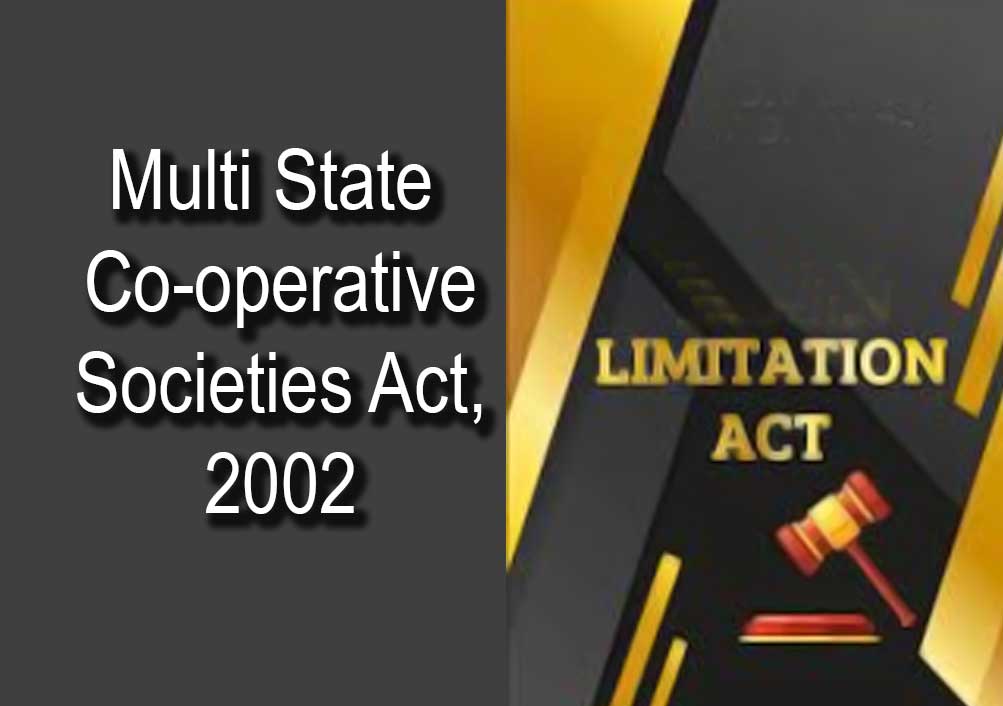In FAO (COMM) 4/2022-DEL HC- For purposes of recovery of money & interest due to Co-operative Bank by Bank’s member & shareholder, limitation period for referral of dispute to arbitration would be governed by Sec.85(1)(a) of Multi State Co-operative Societies Act & not by provisions of Limitation Act: Delhi HC
Justices Rajiv Shakdher & Girish Kathpalia [24-05-2023]

Read Order:NAJMUS SEHAR Vs. M/S BOMBAY MARCANTILE COOP BANK & ORS
Tulip Kanth
New Delhi, May 27, 2023: While observing that the Multi State Co-operative Societies Act, 2002 was enacted to consolidate and amend the law relating to co-operative societies to facilitate the voluntary formation and democratic functioning of co-operatives as peoples’ institutions based on self-help, the Delhi High Court has clarified that provision u/s 85(1)(a) has been created to ensure nurturing of the bond between the co-operative society and its member till death of the member or cessation of his membership.
The Division Bench of Justice Rajiv Shakdher & Justice Girish Kathpalia made reference to the detailed National Policy on Co-operatives, embodying the origin and growth of co-operative movement in India and affirmed, “The policy decision also recognized the need to provide preferential treatment, as far as possible to the co-operatives engaged in areas such as credit, labour, consumer, services, housing, development of SC/ST and women and development of emerging areas as well as sectors requiring peoples participation especially in rural areas.”
The circumstances which led to filing of this appeal were such that in the year 1998, the present second respondent -principal borrower availed loan of Rs 2,90,000 from the first respondent- co-operative bank for the purchase of a new Ambassador car against hypothecation, for which the appellant and the now deceased father of the third respondent stood guarantor.
The borrower having turned defaulter, liability to repay the loan with interest rose across the period to a sum of Rs 10,11,640. Consequently, the bank invoked arbitration proceedings against the principal borrower as well as the guarantors (the appellant and the now deceased father of third respondent), which culminated into an ex-parte award. During pendency of execution proceedings, the appellant filed an objection petition under Section 34 of the Arbitration and Conciliation Act, which was dismissed by way of the impugned order. Hence, the present appeal was filed.
The appellant had contended that the arbitral award was wrongly passed ex-parte insofar as the appellant despite being a respondent to the claim was not served with notice of the arbitral proceedings. Secondly, it was argued that the loan having been advanced in the year 1998, the reference to the arbitral tribunal in 2014 was clearly barred by limitation. Thirdly, it was contended that the role of the appellant being merely a guarantor and the second respondent being principal borrower and alive, the dispute ought to have been raised only against the principal borrower .
On the issue of limitation, counsel for the Bank referred to the provision under Section 85(1)(a) of the Multi State Co-operative Societies Act, 2002 and claimed that there was no breach of limitation period.
At the outset, the Bench clarified the fundamental legal position that liability of guarantor is co-extensive with that of the principal borrower and both of them are jointly and severally liable to the lender. The Bench opined that the appellant appeared to have ignored that the arbitral proceedings in the present case were conducted against not just the appellant but against the principal borrower as well as the co-guarantor,and the same culminated into the arbitral award.
On the issue of service of notice, the High Court was of the view that despite substituted service, none appeared for the principal borrower and both the guarantors, there was no option before the arbitral tribunal but to proceed ex-parte against them. “The appellant himself having not joined the arbitral proceedings, cannot now claim that he was fraudulently made to sign the guarantee papers”, it was further held by the Court.
Referring to section 85(1), the Bench stated tha where a dispute relates to recovery of money including interest payable to a co-operative society by its member, the period of limitation for referral to arbitration would be computed from the date on which the member dies or ceases to be a member of the society and that is notwithstanding anything contained in the Limitation Act.
As per the Bench, the appellant was not only a member but also a shareholder of the bank, and so for the purposes of recovery of money with interest payable by the appellant to the Bank, the limitation period for referral of dispute to arbitration would be governed by Section 85(1)(a) and not by the provisions of the Limitation Act. Since the appellant was alive and had not ceased to be a member of the bank, the limitation period for referral of dispute did not even commence and therefore, the referral to arbitration was not bad in law.
Upholding the view of the District Judge (Commercial) that the scope of objections under Section 34 of the A&C Act is quite limited andnot similar to the scope of appellate jurisdiction, the Bench upheld the impugned order and dismissed the appeal.
Sign up for our weekly newsletter to stay up to date on our product, events featured blog, special offer and all of the exciting things that take place here at Legitquest.




Add a Comment